Public education is supposed to be the great equalizer in America, but here we are in 2010 and our education system is almost perfectly designed to ensure some groups will never perform academically as well as others.
After a year and a half of interviewing students, parents, teachers and policymakers for my first documentary film, TEACHED, I understand now what will be the great equalizer: technology. Especially technology used in and around the public education system.
One high school senior from Washington, DC told me—as so many minority students have recently, to my surprise and horror—that he had a teacher who called his class “stupid” and “idiots.”
This was a pre-calculus class. And according to the student (an African-American whose older brothers were both drop-outs) the teacher refused to actually teach; he would simply write new problems on the board each day then sit down. He was the only pre-calculus teacher in the school.
This student is now teaching himself pre-calculus online because, he says, “if you don’t learn pre-calculus in high school, how can you pass calculus in college?”
Not every student will have the time, gumption or, most importantly, access to defy our school’s expectations for them, but online opportunities could allow more and more students to bust through the achievement gap and reach their potential. And, hopefully, using technology in the schools to provide tailor-made and sky’s-the-limit learning for students—and to obtain consistent and immediate feedback on whether and how they are learning—will eventually be the norm, not the exception.
However, since nothing obvious seems to happen in K-12 education easily, I am pursuing another use of technology to try and hurry things up: producing a documentary film that exposes and analyzes the systemic practices that contribute to the achievement gap, especially as they play out in America’s inner cities.
TEACHED looks especially hard at the profession of teaching, and what the unionization of a job that requires a four-year college degree (and has massive, consistent numbers of dues-paying members) has meant for students, teachers and the system as a whole.
When I started out to make TEACHED, little did I know that when it was finished, it would be born into a new and quickly-filling space of other fresh, mostly feature-length education documentaries. Having worked to improve inner-city schools since teaching in South Central, LA, I am thrilled to see this collective awareness emerging around the need to reach a broader audience with the stark realities of, and myths surrounding, our education system.
How many of you have thought, “We need An Inconvenient Truth for education reform?” Fortunately, the guys who made An Inconvenient Truth thought so too, and have made a wonderful film I was fortunate to see at its Sundance premiere; read my review here.
While those of us working in the education field may be well aware of the lingering inequities in the education system—and how they are revealed through student performance—the greater public is often misinformed about how and why achievement gaps persist. And the mixed messages the public receives, I think, has led to what I like to call “outrage fatigue,” and, in turn, apathy. At least, this has been my experience and was a great motivator behind the decision to make TEACHED.
Anyone can watch, understand and be inspired by a movie. The medium can take information that is too often stuck in ivory towers and project it into hearts and minds everywhere.
Today’s low-cost, high-definition digital video cameras and incredible editing software make this an achievable goal for just about anyone; combined with the ubiquitous Internet and the ease of targeting audiences (via social media), this means that your film—or public announcement, or whatever you like—could potentially be seen by thousands without ever appearing in traditional media or a theater. (This is, by the way, what I will be talking about at the NewSchools Summit on May 12).
Over a hundred hours of footage and many steep learning curves later, the rough cut for TEACHED is finished. We are now seeking sponsors for the film and its corresponding website, which will use technology in yet another innovative way in order to motivate change in the education system (ah, the suspense!). Please email me if you’re interested in learning more at kamis@loudspeakerfilms.com. See you soon.
Kelly Amis was a charter corps member for Teach For America and has since worked for a variety of entrepreneurial education organizations, including Fight for Children, the Cesar Chavez Charter Schools for Public Policy, and the Thomas B. Fordham Foundation.


